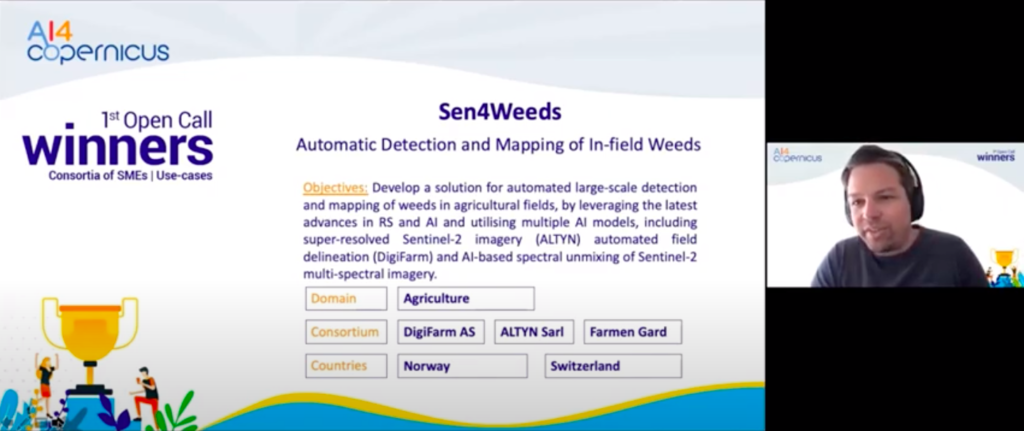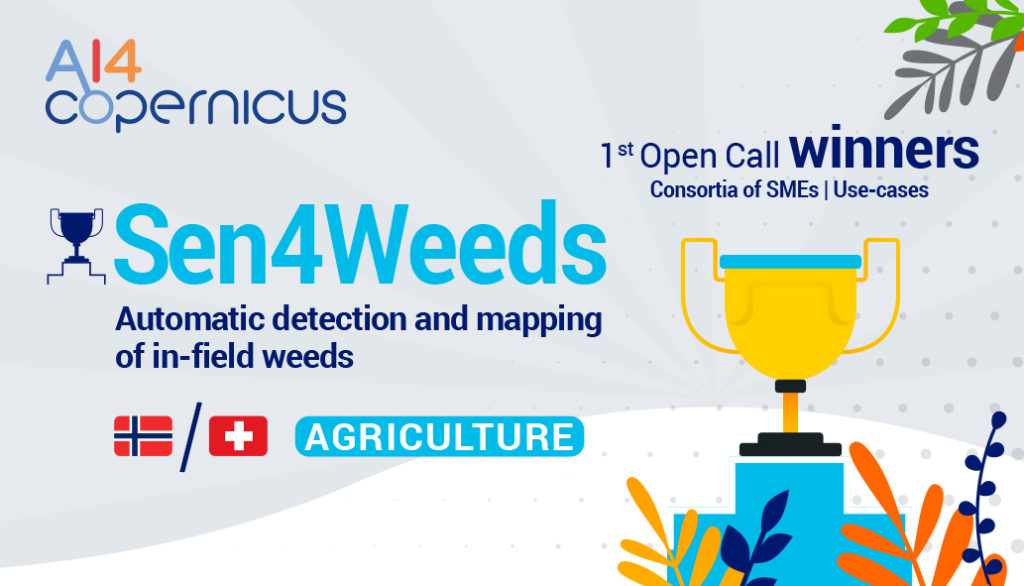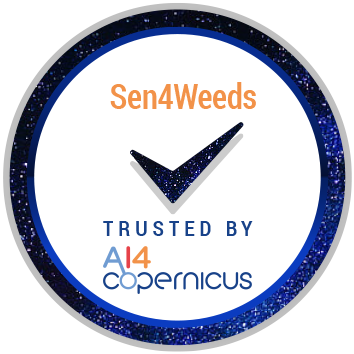Sen4Weeds – Automatic detection and mapping of in-field weeds
Winning project from the 1st Open Call funded by the AI4Copernicus Project
Companies: DigiFarm AS / ALTYN Sarl / Farmen Gard
Countries: Norway / Switzerland | Domain: Agriculture
An interview with the winners – Nils Helset, representing the Sen4Weeds project

Q: What was your motivation for creating this proposal?
A: Having been raised in a farm in Norway, I have experienced Agriculture first-hand. Early on, I realised how time-consuming, inaccurate and costly (due to labour) de-weeding wild oats from crops is. Every year, the Norwegian Food Safety Authority mandates all farmers to fill out forms and submit their declaration of any wild oats found on the farm and fields, as they are widely spread and constitute a significant weed problem in Norway, and the rest of the world, as wild oats compete strongly with cereal crops due to their similar biology and growth habits. In this way the weeds can cause significant losses in crop yield when left unmanaged. This was the stimulus of starting our weed detection project with project partners, DigiFarm and Altyn, Farmen Gard. We are aiming at providing the field boundaries and seeded acres which is a critical fundamental layer of the weed detection algorithm, and at providing the geo-spatial expertise in multi-spectral high-resolution SatEO data. We are going to build an automatic, reliable and scalable technological solution that will not only work in Norway but also across multiple weed-species in regions covering Europe, Canada, Brazil and the US.
Q: Which is the most critical impact (societal or other) that your project could make (if you could name one) ?
A: Wild oats are highly competitive and when left uncontrolled, can reduce wheat yields by up to 80%. Greatest yield loss occurs when the plants emerge at the same time as the crop. They produce a large number of seeds and up to 20 000seeds/m2 can be produced by uncontrolled infestations. The most critical impact of our project will be to help farmers detect, manage and control weed infestations in their crop-fields during the growing season in order to reduce manual de-weeding and scouting and to increase yield from managing early weed-infestations.
Q: Considering the recent funding received through the AI4Copernicus Open Calls, do you have any plans for further development of your idea?
A: Yes, absolutely, our plan is to be able to scale this project to not only cover wild oats but increase the number of crop-types and weed-species we can detect in a wider geographical region, as early as possible in the growing season. The successful completion of this project will enable it to provide larger impact to farmers worldwide.


Abstract of the project: Sen4Weeds will develop a solution for automated large-scale detection and mapping of weeds in agricultural fields. The proposed technology leverages the latest advances in Remote Sensing and Artificial Intelligence and will utilise multiple AI models including super-resolved Sentinel-2 imagery developed by ALTYN and automated field delineation developed by DigiFarm, as well as AI-based spectral unmixing of Sentinel-2 multi-spectral imagery.



